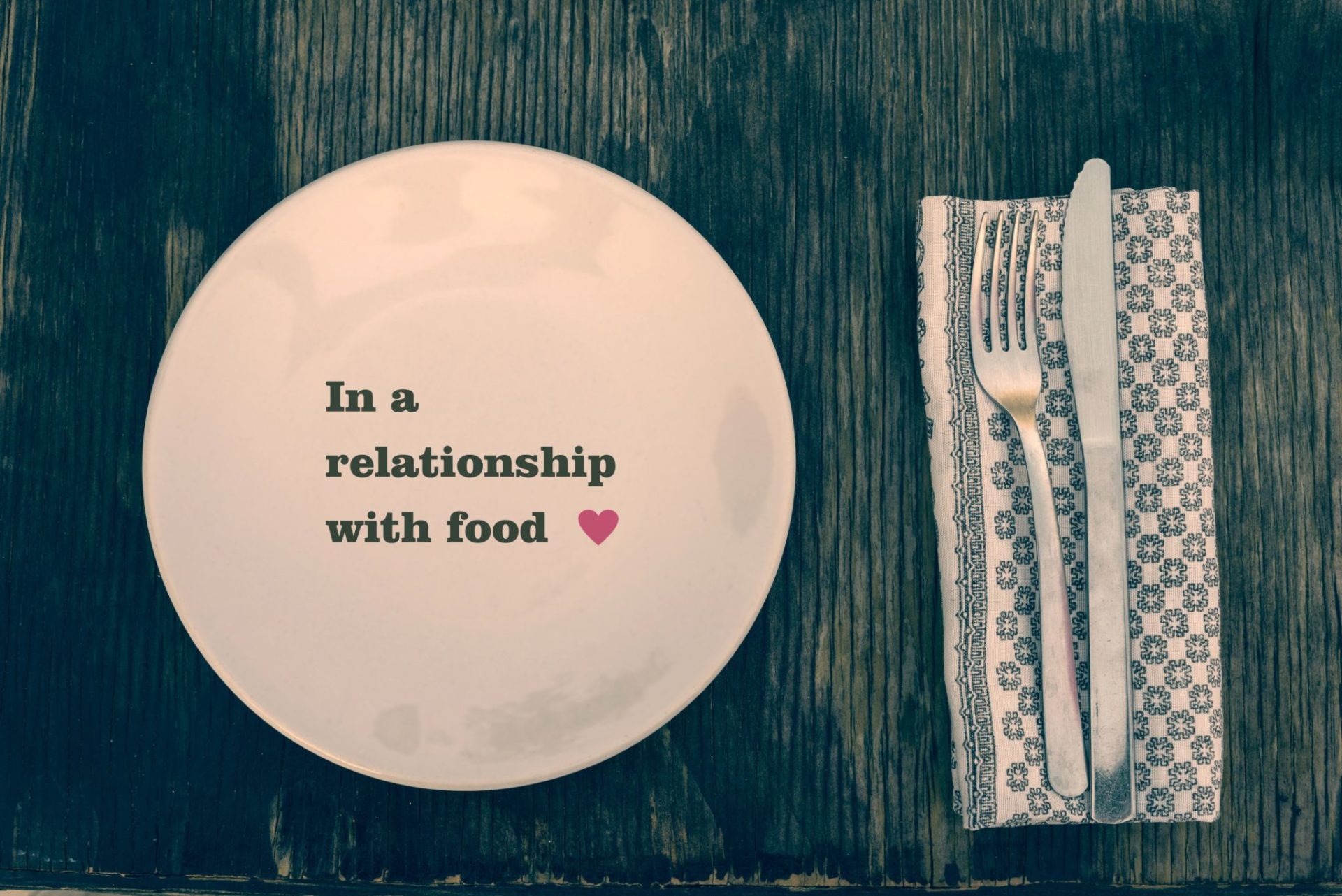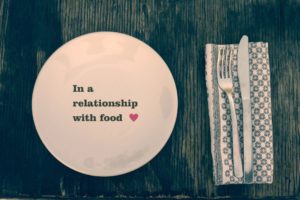

Building a Better Relationship with Food – 4 Things You Should Start Doing Now
Look, it isn’t you. It’s me.
I just need some space.
Let’s take a break for a while.
This just isn’t working out.
Whatever the reason, it’s time to break up…with your food. Your special friend is taking you on a roller coaster ride through life. One minute you are up, high, full of energy, happy and the next minute you are at the bottom, with no energy, sad, depressed and maybe even lonely. This “friend” lifts your spirit for a moment, then pulls the rug out from under you at the doctor when you find out you have high cholesterol, are pre-diabetic, and have gained 20 pounds since last year. What kind of “friend” is that? This time, it’s serious. You. Must. Break. Up. But how? How do you break up with something that has been such a huge part of your life for days, weeks, months, and years? First of all, you must understand, not just with your head, but with your heart, that the relationship is not doing you any favors. You must understand it may be difficult right now, but in the long run you will be a healthier, happier person. Once your head and heart understand and you are ready to commit to breaking it off do these 4 things.
- Learn that food will always be available. You know that cake Sally brought to work yesterday you just had to have a piece of? You jumped up out of your seat and ran to the kitchen as fast as you could because, after all, it was the LAST CAKE ON EARTH. Not. I can assure you it was not the last cake on earth. I can also assure you it probably isn’t the last time Sally will make that cake either. Promise. So, how do you pass up a delicious piece of homemade pound cake? You learn that food will always be available.
- Get rid of the “I can’t eat that” mentality. Don’t think of it as “I am not allowed to eat that” kind of thing. Because, let’s face it, as humans we always want things we cannot have. Instead, your thought process should be, “I am choosing not to have pound cake today because I can eat it another time.” When you change your thought process you eliminate the idea of something being off limits and the urgency to grab a piece is eradicated.
- Stop categorizing food as good and bad. When I hear someone say, “I have been so bad today.” My mind immediately thinks you have put on a ski mask, ran into the bank on the corner, armed, and stole all their money. Seriously. That would be bad. Just because you ate a cookie doesn’t mean you were “bad”. And, honestly, viewing food as bad probably makes you want to eat it that much more. Food should be fuel for your body. As you know, there are several different grades of fuel – regular, mid-grade, and premium. Foods should be placed in one of those categories. Let’s take sources of carbohydrates for example. A regular, low grade carbohydrate food would be a type of carb that is loaded with sugar, say, a Pop-Tart. A mid-grade carbohydrate, in my opinion, would be whole wheat bread. A premium grade carbohydrate would be a sweet potato. All are sources of carbohydrates and all can be used to fuel your body. None of them are “off limits” to me, I just choose to eat the carb source that fuels my body for optimum performance. Now, do I ever eat a low-grade carb? Of course I do. Do I feel guilty about eating them? No, I certainly do not. When you begin to see food as a source of fuel for your body your relationship with food will slowly improve. Seeing food as good and bad typically causes us to deprive ourselves, thus making us overindulge in low-grade food sources when we do eat them.
- Stop using food as a reward. Food should not be used as a reward in any way. The “I’ve been good all day so I deserve this piece of pizza,” or the “I met my deadline at work so give me that chocolate cake,” mentality is no way to improve your relationship with food. When we reward ourselves with food because of good behavior or a job well done it causes us several serious issues. One issue: we tend to eat when we aren’t hungry and then we overeat that particular food because, after all, we did a good job! Another issue: we tie our feelings and emotions of a job well done to food. Thus, we start eating emotionally. What happens when we are sad, or failed at meeting a deadline, got reprimanded at work, etc? We eat, usually overeat, because that food is now associated with feelings of a job well done, happiness, joy, and celebration. We eat in hopes of making ourselves feel better. And, for a moment, it does. Then afterwards, we learn eating all that food didn’t help the situation at all and made us feel worse than we did before. How do we stop using food as a reward and eating emotionally? We must first recognize we are doing it. I tell my clients when the urge to overeat hits they must pay attention to how they feel at that moment. Make a mental note or write it down. Instead of just going for it, stop, and think about why you have the urge to eat, what is causing you to feel that way, and how you can resist the urge. Thinking about what you do before you do it can help deter you from making bad decisions. Think about what you put in your mouth and think about how that food makes you feel after you eat it. When we begin to look at the long term instead of the short term our relationship with food improves. Using your brain when you eat will help improve your relationship with food. Stop eating mindlessly and think about what you are putting in your mouth.
Emotional eating is difficult to overcome, but if you are 100% fed up with feeling the way you do and 100% ready to change, then, you will 100% succeed! You can do this!
Any other tips for overcoming emotional eating? Let us know in the comments!
